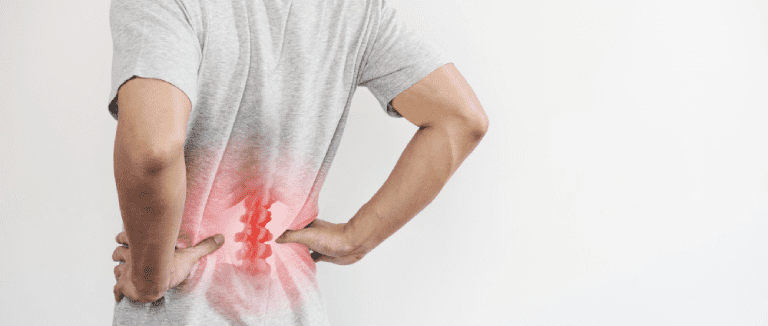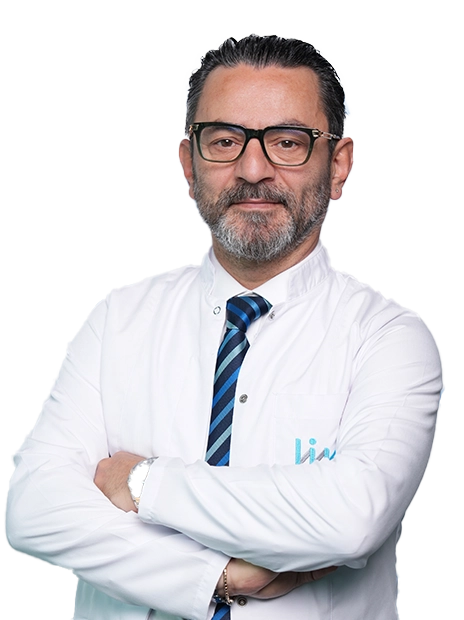Understanding Spinal Disc Herniation: Causes, Symptoms, and Effective Treatments
Spinal disc herniation is a common and painful condition that most often affects the lumbar (lower back) region, though it can also develop in other parts of the spine. Many people find the terms bulging disc, slipped disc, and herniated disc confusing, as they are sometimes used interchangeably. In this comprehensive guide, we will explore every aspect of spinal disc herniation”including its symptoms, available treatment options, and the recovery process.

Disc Herniation: What Is It?
A spinal disc herniation, or herniated disc, occurs when the soft inner core of an intervertebral disc pushes through its tough outer layer, known as the annulus fibrosus. This can result from aging, natural wear and tear, or sudden injury.
Although "slipped disc," "herniated disc," and "bulging disc" are frequently used synonymously, they differ slightly. A herniated disc suggests a more severe rupture or displacement of the inner core, whereas a bulging disc involves a gradual protrusion of the disc material.
Symptoms of a Herniated Disc

Depending on where the damaged disc is located and how much pressure it places on surrounding nerves, a herniated disc can cause various symptoms. Typical herniated disc symptoms could be:
- Lower Back Pain: Sharp or dull lower back pain is one of the most common signs of a herniated disc. Either a localized or leg-wide radiating pain is possible.
- Leg Pain (Sciatica): Pain, numbness, or other symptoms may occur if a herniated disc presses against a nerve.
- Muscle Weakness: Leg muscle weakness or trouble moving the affected area can result from herniated discs.
- Numbness and Tingling: Affected areas in patients may feel numb and tingly, sometimes extending to the toes and feet.
- Bladder or Bowel Dysfunction: In rare instances, pressure from a herniated disc may cause problems for the nerves that regulate the bladder and bowel movements, resulting in incontinence.
Are you experiencing herniated disk symptoms? Don't put off taking care of your pain and discomfort; get expert advice and assistance right now. You can take an appointment with Liv Hospital in Istanbul to begin your journey to relief and healing. Our top priority is your health.

Treatment for Herniated Discs
After conducting a physical examination, a healthcare provider may recommend imaging tests such as CT, MRI, or X-rays to confirm the diagnosis. The appropriate treatment for a slipped disc depends on the severity of each patient's symptoms and individual circumstances. Here are some commonly used options for bulging or herniated disc treatment:
Conservative Approach:
a.Rest: Acute pain and discomfort can be reduced with rest and minimal physical activity.
b.Physical therapy focuses on building back and core muscles, increasing flexibility, and encouraging good posture.
c.Medication: Physicians may prescribe muscle relaxants, non-steroidal anti-inflammatory drugs (NSAIDs), and painkillers to treat pain and inflammation.
d.Epidural Steroid Injections: By lowering inflammation surrounding the injured nerve, these injections can offer momentary relief.
Surgical:
a. Microdiscectomy: This procedure may be suggested when more conventional therapies prove ineffective or when the symptoms are severe. This minimally invasive procedure removes the herniated disc material that is pressing on the nerve.
b. Laminectomy: To relieve pressure on the spinal cord or nerves, a laminectomy is a herniated disk treatment that removes a small portion of the vertebral bone.
c. Spinal Fusion: This procedure may require severe instability or numerous herniated discs. Through this herniated disc surgery, the spine is stabilized by joining two or more vertebrae together.
Looking for herniated disc treatment in Turkey? You may contact Liv Hospital experts in Istanbul for more information!
Recovery and Retraining
The speed at which a spinal disc herniation heals depends on the treatment plan, the patient's overall health, and the severity of the condition. Here are some key factors to consider during recovery from a herniated or bulging disc in the back:
- Observe Medical Advice: It's essential to follow the advice of your healthcare provider about medication, physical therapy, and rest.
- Physical therapy: Participating in a controlled physical therapy program can enhance posture, strength, and flexibility while fostering long-term healing.
- Pain Management: Follow your doctor's instructions for managing pain, but try not to rely too much on medication to avoid adverse side effects.
- Return to Activities Gradually: As your health improves, return to activities bit by bit, being careful not to overdo intense or high-impact exercises.
- Lifestyle Changes: Making lifestyle adjustments like maintaining a healthy weight, adopting good posture, and remaining active can help stop disc herniations in the future.
Keeping Your Spinal Disc From Herniating
You can lower your risk of spinal disc herniation even though some risk factors, like age and genetics, are uncontrollable:
- Keep Your Weight in Check: Carrying too much weight strains the spine and raises the possibility of disc bulge.
- Maintain Good Posture: Good posture will lessen the strain on your spine. Maintain a straight back and relaxed shoulders when you sit or stand.
- Remain Active: Frequent exercise, especially exercises that target the core, can support the spine and lower the risk of disc herniation.
- Lift Safely: Use safe lifting techniques, such as bending your knees and keeping the object close to your body, when lifting heavy objects.
- Ergonomic Workstation: Make sure your desk is set up ergonomically if you work at a desk.
For those who might be at risk, it is crucial to comprehend the signs, the diagnosis, and the available treatments. Treatment plans should be customized for each patient, regardless of whether they involve surgery or more conservative measures. A successful recovery and a lower chance of recurrent disc herniations can be achieved with a combination of medical attention, physical therapy, and lifestyle modifications.
People can preserve a healthy spine and lessen the impact by adopting preventive measures and adhering to medical professionals' advice. You can contact Liv Hospital experts in Istanbul to book an appointment!
* Liv Hospital Editorial Board has contributed to the publication of this content .
* Contents of this page is for informational purposes only. Please consult your doctor for diagnosis and treatment. The content of this page does not include information on medicinal health care at Liv Hospital .
For more information about our academic and training initiatives, visit Liv Hospital Academy
Frequently Asked Questions
What is a spinal disc herniation?
A spinal disc herniation occurs when the soft inner core of a spinal disc pushes through its outer layer, often causing pain, numbness, or weakness.
What causes a herniated disc?
It can result from aging, repetitive strain, sudden injury, or improper lifting that places pressure on the spine.
What are the most common symptoms of a herniated disc?
Common symptoms include lower back pain, leg pain (sciatica), tingling, numbness, and sometimes muscle weakness.
Is a bulging disc the same as a herniated disc?
No. A bulging disc protrudes outward slightly, while a herniated disc involves a rupture of the disc’s inner material through its outer layer.
How is a herniated disc diagnosed?
Doctors use physical exams and imaging tests such as MRI, CT scans, or X-rays to confirm the presence and severity of a herniated disc.
Can a herniated disc heal without surgery?
Yes. Many cases improve with rest, physical therapy, medication, and lifestyle changes. Surgery is considered only for severe or persistent symptoms.
What treatment options are available for herniated discs?
Treatment may include rest, anti-inflammatory medications, physical therapy, epidural injections, or surgical procedures such as microdiscectomy.
How long does recovery from a herniated disc take?
Recovery time varies but typically ranges from a few weeks to several months, depending on the severity and treatment method.
Can exercise help prevent disc herniation?
Yes. Regular low-impact exercises that strengthen core and back muscles can support spinal health and reduce the risk of herniation.
Where can I get treatment for a herniated disc in Turkey?
You can visit Liv Hospital in Istanbul for expert diagnosis, advanced spinal treatments, and personalized rehabilitation programs.


